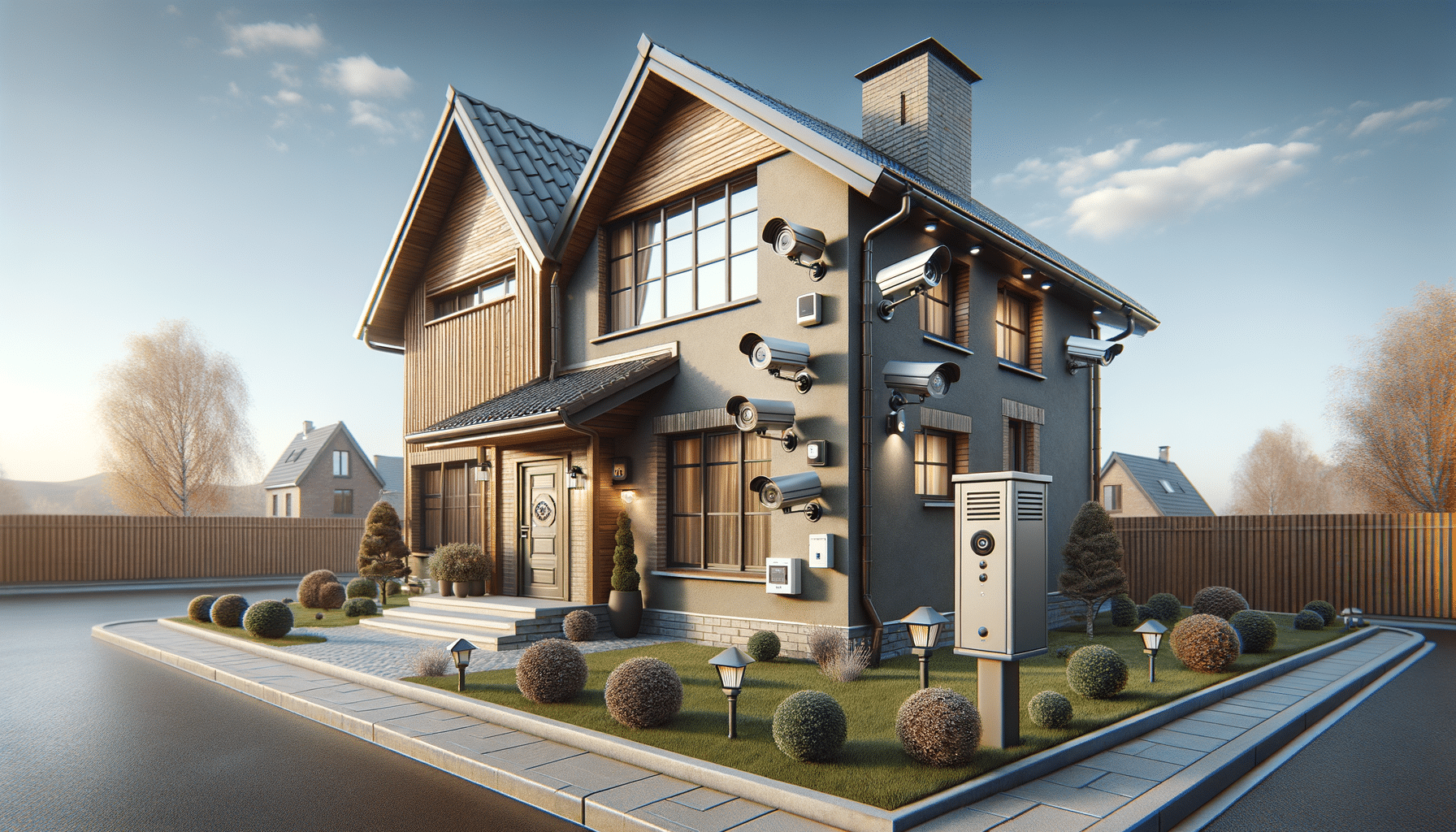
Why Home Security Matters — No Matter Where You Are
The Growing Importance of Home Security
In today’s world, home security is more crucial than ever. With technological advancements and increased awareness, homeowners are seeking ways to protect their properties and loved ones. The need for a robust security system is not just about preventing theft; it extends to safeguarding against various risks, including fire, carbon monoxide poisoning, and even natural disasters. As urban areas continue to grow, the density of population often correlates with increased crime rates, making security systems a wise investment.
Home security systems have evolved significantly. They now offer a range of features that cater to different needs and budgets. From basic alarms to sophisticated systems with cameras and smart home integration, the options are vast. This evolution reflects a broader trend towards proactive safety measures, where prevention is prioritized over reaction.
Moreover, the peace of mind that comes from knowing your home is secure cannot be overstated. It allows homeowners to focus on other aspects of life, knowing that they have taken steps to protect their most valuable assets. This sense of security is a significant factor in the increasing demand for home security solutions.
Technological Advancements in Home Security
The world of home security has been revolutionized by technology. Modern systems are not only more efficient but also more user-friendly. With the advent of smart home technology, homeowners can now monitor and control their security systems remotely. This capability is particularly beneficial for those who travel frequently or have multiple properties.
Some of the most notable advancements include:
- Smart Cameras: These devices offer high-definition video and can be accessed via smartphones, providing real-time surveillance.
- Motion Detectors: Advanced sensors can differentiate between human movement and other disturbances, reducing false alarms.
- Home Automation: Integration with other smart devices allows for automated lighting, temperature control, and more, enhancing security and convenience.
These advancements not only improve security but also add value to homes. A well-integrated system can increase a property’s marketability, making it an attractive feature for potential buyers.
Cost Considerations and Budgeting
Investing in home security can vary significantly in terms of cost. It’s essential to consider your specific needs and budget when selecting a system. While some may opt for comprehensive packages with all the bells and whistles, others might find a basic setup sufficient.
Key factors influencing cost include:
- System Type: Wired systems tend to be more expensive due to installation costs, while wireless systems offer flexibility and often lower installation fees.
- Features: Additional features like smart home integration, professional monitoring, and high-definition cameras can increase the overall cost.
- Service Plans: Many companies offer monthly monitoring services, which can be a recurring expense to factor into your budget.
It’s advisable to compare different providers and their offerings. Look for systems that offer scalability, allowing you to add more features as needed. This approach ensures you don’t overspend initially while keeping options open for future upgrades.
DIY vs. Professional Installation
Choosing between DIY and professional installation is another critical decision in setting up a home security system. Each option has its pros and cons, and the choice largely depends on personal preference and technical ability.
DIY Installation: This option is often more cost-effective and provides flexibility. Many modern systems are designed for easy setup, with user-friendly instructions and support. DIY systems are ideal for those who prefer a hands-on approach and have basic technical skills.
Professional Installation: While more expensive, professional installation offers peace of mind. Experts ensure that the system is installed correctly and functioning optimally. This option is suitable for those who prefer a hassle-free setup or have complex security needs that require expert attention.
Ultimately, the decision comes down to balancing cost, convenience, and confidence in handling the installation process. Both options can provide effective security, so it’s essential to choose what aligns best with your lifestyle and comfort level.
Future Trends in Home Security
The future of home security looks promising, with technology continuing to drive innovation. As artificial intelligence and machine learning become more integrated into security systems, we can expect even more sophisticated solutions. These technologies will enable systems to learn from past incidents, improving their ability to predict and prevent potential threats.
Another trend is the increasing use of biometric technology. Fingerprint and facial recognition are becoming more common in security systems, offering enhanced protection and convenience. These advancements reduce the reliance on traditional keys and codes, which can be lost or stolen.
Additionally, the focus on sustainability is influencing the development of eco-friendly security solutions. Solar-powered cameras and energy-efficient systems are gaining popularity, aligning with the broader movement towards sustainable living.
As these trends continue to evolve, homeowners will have access to more tailored and effective security solutions, ensuring their homes remain safe and secure in an ever-changing world.


